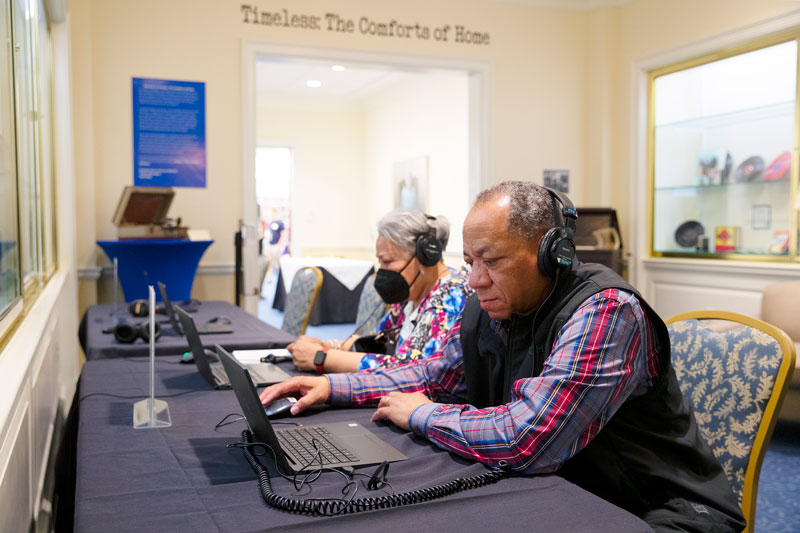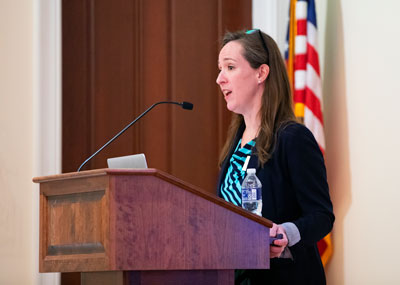
Above: Hampton Roads Oral History Project participants
Read time:

“This project is so much more personal than what’s in textbooks,” said history major Jack Snowdon ‘22.
The opportunity to seek out a unique perspective on history was one of the many reasons Snowdon decided to volunteer with the Hampton Roads Oral History Project. Snowdon, who intends to become a teacher, said he wanted to go beyond the sweeping narratives of the civil rights movement and help capture the individual experiences of those who witnessed it themselves.
“Real history is more than just facts. It’s about lives lived."
”The opportunity to work on this type of project allows us to become aware of and preserve these first-hand accounts. I believe it’s history in the purest form,” Snowdon said.
The Hampton Roads Oral History Project is a service-learning project founded in 2012 by history professor Laura M. Puaca. Created in conjunction with two community organizations, the Newsome House Museum and Cultural Center and the Downing-Gross Cultural Arts Center, the project aims to document the impact of the civil rights movement on local residents. The project has grown and flourished so much over the last decade, Puaca decided to expand and re-launch the website where all the interviews are housed.
“When I launched this project 10 years ago, it was obvious there was a real need to help document the rich history of this area,” said Puaca. “We needed to preserve the stories of local residents whose experiences might not be recorded elsewhere. And we needed to make this information available to the immediate community, as well as future generations. And so, the Hampton Roads Oral History Project was born.”
The project uses recorded interviews to preserve participants’ memories of segregation, integration and the civil rights movement. Most of the interviews are conducted and transcribed by students in Puaca’s civil rights history class. The interview transcripts are later edited by student research assistants, as well as by Puaca herself. Then, they are made available to the interviewees, the project’s community partners and Trible Library, where they have become part of a permanent collection.
Speaking to an audience gathered in the Trible Library for the website relaunch, Puaca said the stories documented are critical to our understanding of the civil rights movement.
“These oral histories hold important lessons for both the local communication and the larger collective. They bring together local and national narratives. And they make possible a fuller, more inclusive rendering of the historical past. It’s important to remember that just as this project teaches us about the prevalence of racism and the hurtfulness of discrimination, we also learned about the strength and resilience of Black institutions.”
Alice Rainey was one of the Hampton Roads residents interviewed for the project. She had shared her experience attending Huntington High School in the 1940s when it was the only high school for African American students in Newport News.
“At Huntington High, we had to have books from the white schools, from Newport News. That was the high school. We had two high schools down in this area: Huntington for blacks and Newport News High for whites. And so, we had books from other schools. We didn’t get new books, the brand-new books. We got the old, used books,” Rainey explained. “But we used those books and we studied those books, you know. And we got our lessons out of those books. And we learned, we learned. What we had, we learned.”
The project also captures the important role of black businesses, families, churches and communities. Additionally, the project documents the process of integration, and the ongoing struggle for social change.
“These interviews teach us much about individual experiences as well as societal structures. They teach us about change and continuity over time. And finally, they teach us about the lasting difference that one person can make,” said Puaca.